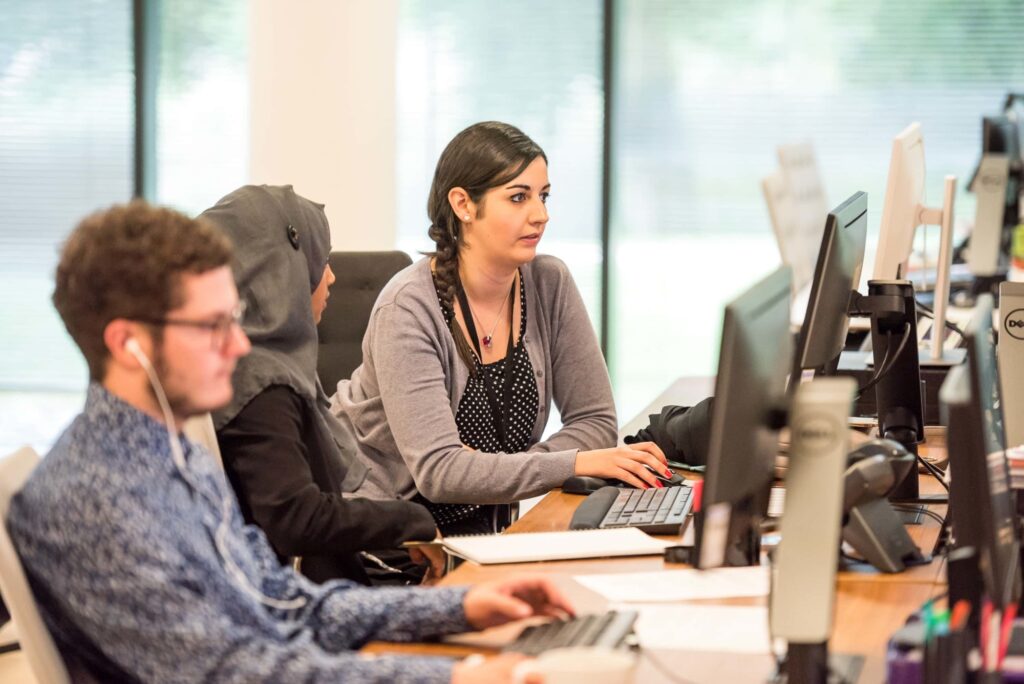Maximizing Team Meetings: Tips & Tricks for Success

Tired of feeling like team meetings are just a mindless exercise, and that you're just running in circles? Do you wish to make meetings more productive and efficient?
Unlock the hidden potential of meetings with these best practices – and watch your team take off! Read on to gain insight into how to maximize meetings and propel productivity.
Preparation: The Key to Successful Meetings
Preparing for a meeting can be the key to ensuring its success. With proper preparation, teams can make the most of their time together and achieve their goals more efficiently. This is especially important in today's fast-paced business environment, where every minute counts.
One way to prepare for a meeting is to set clear objectives and goals beforehand. This ensures that everyone knows what they are working towards and can stay on track throughout the discussion. Additionally, it's important to gather all necessary materials and information ahead of time so that participants can come prepared with any questions or concerns.
Another crucial aspect of preparation is communication. Teams should communicate with each other prior to the meeting to ensure that everyone understands what will be discussed and why it matters. This helps prevent misunderstandings or miscommunications during the meeting itself, which can waste valuable time and derail progress.
Overall, taking the time to properly prepare for a meeting is essential for maximizing its effectiveness. By setting clear goals, gathering necessary materials, and communicating effectively beforehand, teams can work more efficiently towards achieving their desired outcomes.
Setting Clear Goals and Objectives
Setting clear goals and objectives is crucial for maximizing the effectiveness of team meetings. By establishing a clear purpose and desired outcome, team members can focus their efforts on achieving tangible results.
Without clear goals, team meetings can easily become unfocused and unproductive. Participants may feel like they are wasting their time or that the meeting is simply a box to check off on their to-do list. This can lead to disengagement and decreased motivation among team members.
By setting specific, measurable objectives for each meeting, teams can ensure that everyone is aligned towards a common goal. This not only increases productivity but also fosters a sense of camaraderie and shared purpose among participants. With clear goals in place, team meetings become an opportunity for collaboration and innovation rather than another routine task on the calendar.
Encouraging and Valuing Participation
Encouraging and valuing participation in team meetings is essential for maximizing their effectiveness. When team members actively participate and contribute their ideas, the meeting becomes more collaborative, innovative and productive. By creating a culture of inclusion, where everyone's input is valued, teams can foster a sense of ownership and accountability towards achieving their goals.
To encourage participation, team leaders can use various techniques such as open-ended questions, brainstorming sessions or assigning specific tasks to each member. It's important to create a safe environment where everyone feels comfortable sharing their thoughts without fear of judgment or criticism. This can be achieved by acknowledging every contribution made by team members and giving them positive feedback.
Valuing participation also means recognizing the unique strengths and perspectives that each member brings to the table. By acknowledging diversity of thought, teams can leverage different viewpoints to come up with more creative solutions that meet everyone's needs. This leads to better decision making overall and helps build a stronger sense of teamwork.
In conclusion, encouraging and valuing participation in team meetings is crucial for maximizing productivity and achieving success. By creating an inclusive environment where everyone's voice is heard, teams can leverage the power of collective intelligence to overcome challenges and achieve their goals faster. Remember that every contribution counts towards building a stronger team!
Managing Time Effectively for Maximum Efficiency
Managing time effectively is a crucial aspect of maximizing efficiency in team meetings. With so many tasks to complete and limited time available, it's essential to make every minute count. One way to do this is by setting clear objectives for each meeting and sticking to them.
Another way to manage time effectively is by using technology such as scheduling tools or project management software. These tools can help teams stay organized and on track, ensuring that everyone knows what they need to do and when they need to do it.
Finally, it's essential to prioritize tasks based on their importance and urgency. This means focusing on the most critical tasks first, then moving on to less important ones as time permits. By prioritizing effectively, teams can ensure that they are making the best use of their limited time while still achieving their goals.
In conclusion, managing time effectively is crucial for maximizing efficiency in team meetings. By setting clear objectives, using technology, and prioritizing tasks appropriately, construction teams can make every minute count while achieving their goals faster than ever before.
Following Up After the Meeting to Ensure Accountability
Following up after a meeting is crucial to ensure accountability and maximize the productivity of the team. It is important for team members to understand their roles and responsibilities in achieving the goals discussed in the meeting.
One way to ensure accountability is by assigning tasks and deadlines during the meeting. This not only clarifies expectations but also provides a sense of urgency for completing tasks on time. Additionally, it is important to follow up with team members individually after the meeting to make sure they understand their assigned tasks and have all necessary resources.
Another effective method for following up after a meeting is by scheduling a follow-up meeting or check-in. This allows team members to discuss progress on assigned tasks, ask any questions or concerns, and make adjustments if necessary. By regularly checking in with each other, teams can stay on track towards achieving their goals and hold each other accountable for their contributions.
In conclusion, following up after a meeting ensures that all team members are on the same page and working towards achieving common goals. By assigning tasks, setting deadlines, providing resources, scheduling check-ins, and holding each other accountable, teams can maximize productivity and achieve success together.
Get a Free Demo and 30 Day Trial
See why Action Strategy Software is a top choice for small to medium sized organizations

Who is Charles Dayton, and Why Should You Listen to Him?
Introducing Charles Dayton
Meet Charles Dayton, CEO and Founder of Action Strategy, with two decades of experience in consulting with City Governments, Tribal Governments and corporations. He possesses the keen insight and expertise necessary to unlock your organization's potential. With his cutting-edge software, he empowers you to power through complexities and roadblocks, to deliver enviable growth.
Besides consulting, Charles is a family man, community leader and renowned artist.
